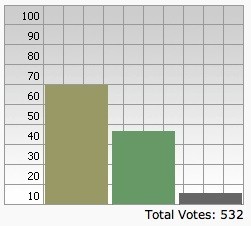|
|
|
At Wrightslaw, our mission is to help you gain the knowledge and skills you need to navigate the confusing, changing world of special education.
The Special Ed Advocate is the only weekly e-zine with accurate, reliable information about special education law, education law, and advocacy for children with disabilities.
Published continuously since April 1998, subscribers receive alerts about new decisions, events, and special offers on Wrightslaw publications and products. Sign up free today!
| |
In This Issue: |
| | |
|
Do
you know others who want to learn how to advocate for a child with a disability?
Please forward this
issue or the subscription
page so they can learn about special education law and advocacy too. Newsletter
Archives (1998-2006) |
| |
Poll: Is Dyslexia a Specific Learning Disability under IDEA? |
Last week, we asked readers to answer a quick question about eligibility under IDEA: "Is dyslexia a specific learning disability under IDEA?"
Fifty-nine percent of you answered "Yes" which is the correct answer. Congratulations!
Is dyslexia a specific learning disability under IDEA?

Dyslexia is listed as a “specific learning disability” in the Individuals with Disabilities Education Act (20 U.S.C. 1401(30)) and in the federal special education regulations. (34 CFR 300.8(c)(10)). (See pages 55 and 194 in Wrightslaw: Special Education Law, 2nd Edition for the legal definition of "specific learning disability").
New Question: "Can a child who receives passing grades be eligible for special education services?"
To answer, use the Quiz box on the left side of this newsletter. If you don't see the question, your email program may have blocked it. Check the newsletter or the home page of the Wrightslaw site (left column) to answer this week's question.
We'll provide the correct answer in next week's newsletter.
| |
back to the top |
| |
"A Lesser Spirit Would Have Been Crushed Years Ago" |
When a U. S. District Judge issued the decision in Jarron Draper v. Atlanta Public Schools less than two weeks ago, the 20 year-old plaintiff was stocking shelves at Target and working as a security guard.
Despite the best efforts of this young man and his family, Jarron couldn't read, earn a high school diploma, or fulfill his dream of attending college.
In Jarron Draper v. Atlanta Independent School System
(N.D. GA 2007), the Court found that the Atlanta Public School (APS) staff misdiagnosed Jarron as mentally retarded, refused to evaluate him, and failed to re-evaluate him after three years, as required by law.
After an independent evaluator determined that Jarron has dyslexia, the school failed to provide him with an appropriate special education program. After a dozen years in Atlanta Public Schools, his reading, spelling and math skills remained at the 2nd to 3rd grade level.
Jarron's family requested a special education due process hearing. Jarron was represented by his aunt, Denice Morgan.
"Air of Disdain and Tone of Contempt"
The Administrative Law Judge wrote, "The written transcript of the hearing in this case cannot possibly capture the air of disdain and tone of contempt that the APS officials showed toward J.D.'s efforts to acquire a program of reading instruction that will give him a fighting chance to read. . . The overt behavior by APS officials went beyond the bounds of normal adversarial behavior. . . . A lesser spirit would have been crushed long ago."
Because the school system failed to provide J.D. with a free, appropriate public education, the Court awarded him four years of compensatory education at a private special education school or until he graduates with a regular high school diploma.
Read the inside story of this case in "A Lesser Spirit Would Have Been Crushed Long Ago" Jarron Draper v. Atlanta Public Schools. More articles about legal decisions and issues.
Surviving Due Process DVD Video
Surviving Due Process: Stephen Jeffers v. School Board takes you through the due process hearing, from initial preparations to testimony by the final witness. See direct examination and cross-examination of witnesses, objections, arguments between counsel, and rulings by the hearing officer.
Trailers: Watch the trailer in Quicktime or Windows Media Player.
|
|
back to the top |
| |
Jarron Draper v. Atlanta Indep. Sch. System (N.D. GA 2007) |
In Jarron Draper v. Atlanta Indep. School System (N.D. GA 2007), a U. S. District Court Judge upheld the decision of an Administrative Law Judge, ruled in favor of a student with dyslexia, and ordered the school system to provide four years of compensatory education at a private special education school.
The decision in Jarron Draper v. Atlanta Indep. School System focused on several issues:
- Statute of Limitations
- Burden of Proof
- ALJ's Findings of Fact
- Whether APS Provided J.D. with a FAPE
- Compensatory education as an appropriate remedy for failure to provide FAPE
"Based on a preponderance of the evidence, the Court agrees with the ALJ's conclusion that APS failed to provide J.D. a FAPE by providing him essentially the same services that had failed him for three years in reading. . . ."
"APS argues that J.D. received some educational benefit because he received passing grades. The U.S. Supreme Court has cautioned that every handicapped child who is advancing from grade to grade is not automatically receiving a FAPE. Rowley, 458 U.S. at 202, 203 n.25 ..."
Jarron Draper v. Atlanta Indep. School System includes a comprehensive discussion of compensatory education and when it is an appropriate remedy for the failure to provide FAPE.
More special education caselaw
|
|
back to the top |
| |
Getting Help for Children Who Have Reading Problems by Sue Heath |
"My 7 yr old is making very slow progress in learning to read. He repeated kindergarten last year but is falling further behind. When I mentioned Orton Gillingham methods to his school team, they said, "We don't do that." What can I do?
Sue Heath, Wrightslaw research editor, answers:
Your child has fallen behind in the special ed program. The special ed program is not helping to close the gap. Your son was closer to his peers a year ago than he is now after a year in special ed.
Get help now! You are running out of time. You have to make this happen with or without help from the school. If you wait to convince the school personnel, you will miss the window of opportunity your son has to learn to read fluently.
Read Getting Help for Children Who Have Reading Problems by Sue Heath.
Read more articles about reading, No Child Left Behind, advocacy strategies, high-stakes testing, and retention by Sue in Doing Your Homework. |
|
back to the top |
|
Recommended Resource: Reading Rockets
|
It's time to check your child's reading progress and ensure that your child is learning to read!
Parents and teachers will learn about assessment techniques and reading research on Reading Rockets, a superb reading website for parents and teachers.
Reading Rockets is a multimedia project that includes information and resources about how young kids learn to read, why so many kids struggle, and how adults can help. What will you find on Reading Rockets?
.
Information for Teachers
Techniques for Teaching Reading Effectively - If reading came naturally, teaching would be easier. Children would learn to read as they learn to speak. But for many children, reading must be taught explicitly and systematically, one step at a time. That's why highly trained teachers are so important.
Information for Families
From the time a child is born, there are simple things you can do to help your child become a good reader.
You also need to watch for early signs that your child may have trouble learning to read so you can get help early. Reading Rockets provides step-by-step guidance that parents can do to raise a reader.
|
|
| We
are scheduling programs for 2007 and 2008. If you are interested in bringing a
Wrightslaw program to your community, please read our Conference
Information page. | |
back
to the top | |








